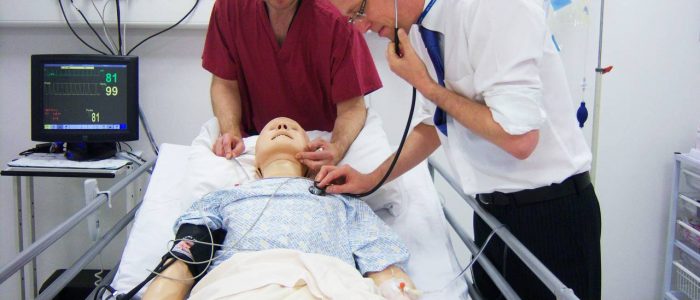Open Doors Event Allows Public To Become a ‘Doctor For a Day’
A rare chance to become a doctor for a day and carry out life-saving treatment on ‘patients’ such as Stan and Reg is being offered as part of this year’s National Doors Open Scheme. Participants will get the chance to work in ‘operating theatres’ in the heart of Forth Valley Royal Hospital which are normally used for training medical staff across Scotland.
The event, which takes place on Saturday September 17th 2016, allows members of the public to step inside the Scottish Centre for Simulation and Clinical Human Factors to hone their skills by practising on a family of special state-of-the-art robotic mannequins.
Robot patient Stan can respond to anaesthetic gases and ‘answer’ questions to help medical staff reach the right decision. Trainees have to make sure they take into account factors such as height and weight, and whether he may have a chronic condition such as asthma or diabetes.
Reg who has a heartbeat, can give blood and describe his symptoms as well as moan and open and close his eyes. Also in the lifelike operating theatre and inpatient ward are a baby, a child and a pregnant female mannequin.
Dr Michael Moneypenny, Director of the Scottish Clinical Simulation Centre, said: “The centre at Forth Valley Royal Hospital is unique in Scotland. The high-tech ‘robots’ are used to simulate a range of medical conditions including heart attacks and convulsions and the responses of those taking part in training courses are monitored and recorded on video. Participants then take part in a debrief where their decision-making and actions are evaluated to see where things went well and where they didn’t go so well.
“We thought it would be a great idea to take part in Doors Open Day to give members of the public an opportunity to take part in some simulated clinical scenarios and get a real insight into the many factors health staff have to consider during life-saving operations.”
The Centre, the only high-fidelity facility of its type in Scotland has two complete operating theatres with two-way mirrors so that trainers can constantly monitor performance. Around 1,000 medical and clinical staff from across Scotland, and beyond, are trained at the national facility every year.





